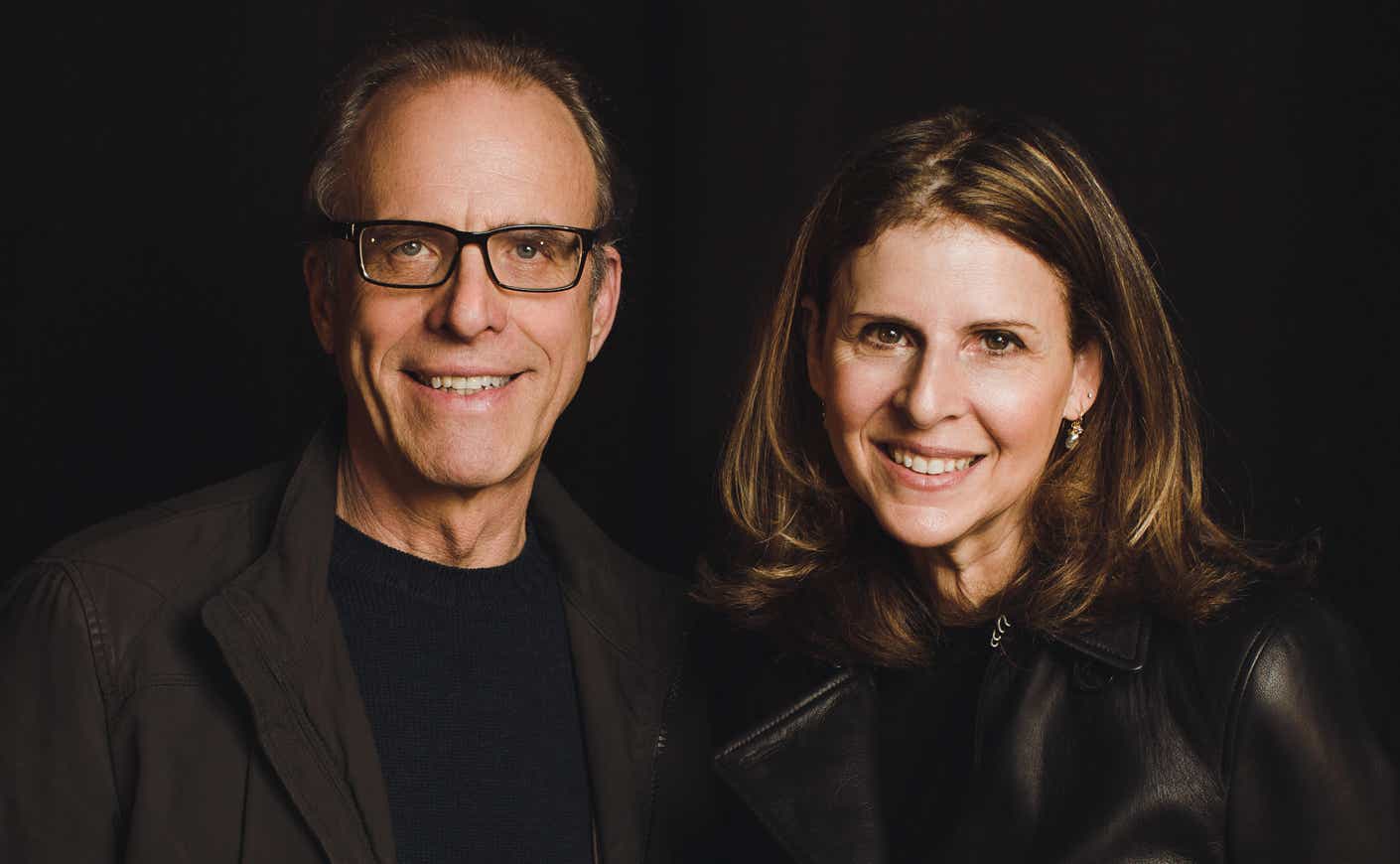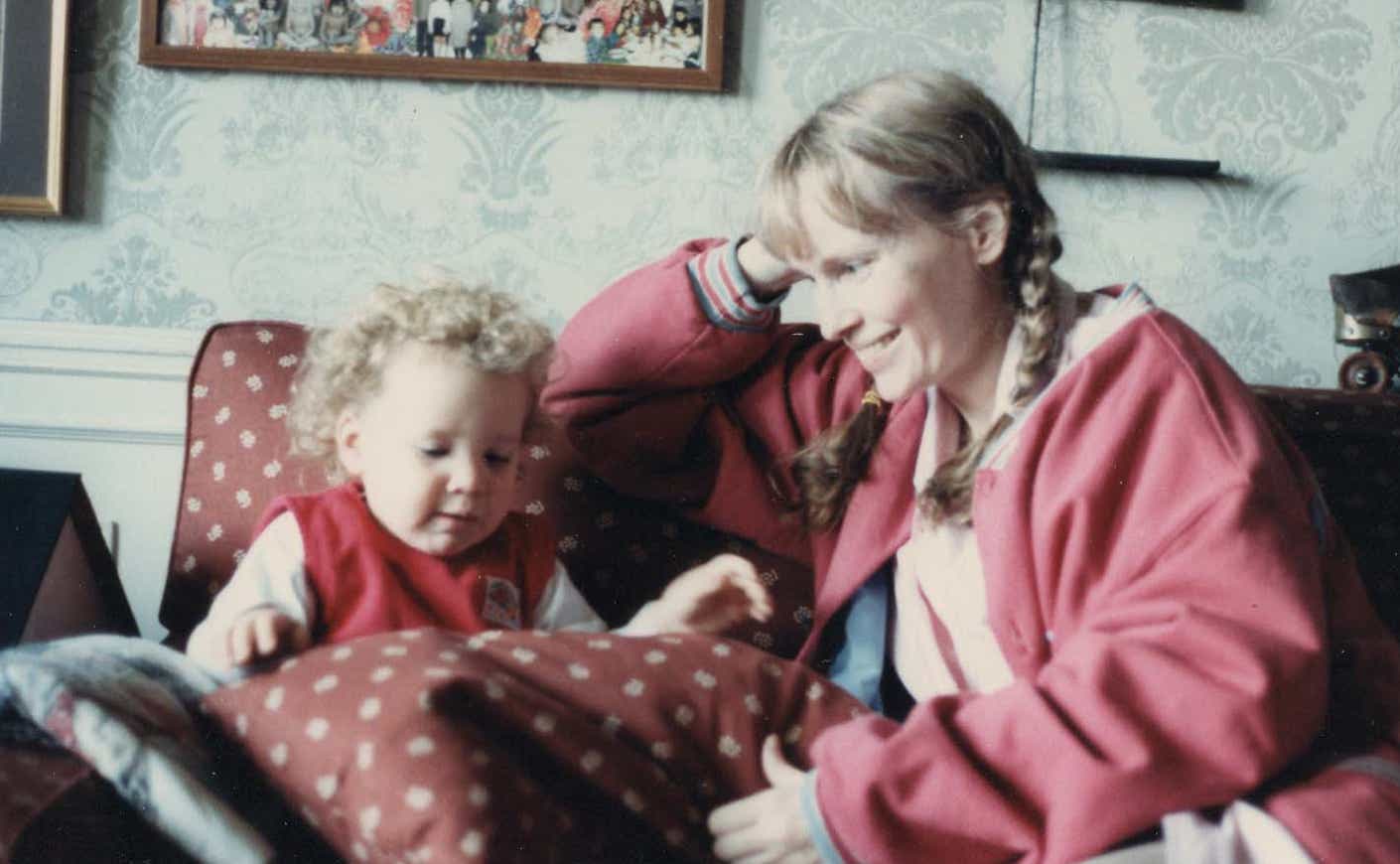Filmmakers Amy Ziering and Kirby Dick’s Allen v. Farrow, which sees its final episode released Sunday night on HBO, invites viewers to reevaluate a decades-old case that has roiled Hollywood.
The shocking allegation that director Woody Allen sexually abused his adoptive daughter Dylan Farrow, while he was in a relationship with actress Mia Farrow, was breathlessly covered in the early ‘90s before the case eventually faded from public interest for some time. In recent years, Dylan, her mother and Dylan’s brother Ronan have readdressed the allegations on several occasions. Now, Ziering and Dick — through their four-part docuseries — are making the case that what was presented in the court of public opinion nearly 30 years ago was not the full story.
“It’s a story we think we knew, but no one knew,” Ziering tells KCM.
Ziering and Dick attempt to paint a fuller picture and move beyond what has been viewed as a case of “he said, she said” in Allen v. Farrow. The series includes extensive interviews with Mia and Dylan, taped conversations between the estranged couple and for the first time, video footage of Dylan, then 7, telling her mother about the alleged abuse.
KCM spoke with the filmmakers about their three-year process to bring this story to screens, what new information they uncovered and what it was like to tell a story about incest, a topic Ziering says is still considered a “third rail in this country.”
KCM: Can you tell us why the two of you chose to reexamine this case in your docuseries?
Kirby Dick: We didn’t set out to make this series or look into this case. We obviously had made a number of films about sexual assault, and as soon as the Me Too movement broke we very quickly got funding to make a film about it. We decided to start looking into all different kinds of industries, not only Hollywood, but we were looking into Silicon Valley, restaurant workers, farm workers — it was really a wide sort of exploration. And in the process one of our producers and one of the co-creators in the series reached out to Dylan.
She initially was reluctant to speak, because the coverage of this had been so kind of one-sided and sort of mischaracterized the facts and her experiences. But after some time she said yes, and Amy Ziering did an interview with her.
It was a very powerful interview that she gave, and what was interesting to us was not only was there a lot more information that she was talking about that really was not out in the public. But her telling her story and the experience that she went through, she told it in such a moving and powerful way that we became more interested in this story.
But for me I was still reluctant, and I think Amy was too initially, to actually look deeply into it because we felt that it had been really extensively covered. [Producer] Amy Herdy decided to do a deep dive and she kept coming up with more and more information, facts and documents — none of which were out in the public arena and painted a whole different perspective to what had happened. A perspective that was much different from what the Woody Allen camp had successfully put out for 30 years. As more information came in, we turned our focus more and more onto this story.
Amy Ziering: It’s a story we think we knew, but no one knew. We only heard part of the story for the last three decades, and when we talked to Dylan, I was struck by how there was so much more here.
Also, we had long been wanting to do something in the space of incest. Because every time we screened our last two films, Invisible War and Hunting Ground, people would implore us to look at what goes on inside the home. That’s sort of the third rail in this country still for sexual abuse — just too shameful, too awful to contemplate. It’s still sort of a cultural secret.

You worked on this series with investigative journalist Amy Herdy. What did she discover in her reporting that viewers would be surprised to learn?
Ziering: It’ll be surprising for viewers to see the tape of Dylan giving her own testimony of what happened as a 7-year-old. And then we have independent experts analyze the tape and show why it’s convincing evidence.
I think hearing the audio tapes that Mia and Woody each at different times taped of their conversations will be revelatory. You’re hearing their voices discussing these matters, contemporaneous with them happening at the time.
Dick: The other thing that really surprised us was how aggressive Woody Allen and his team was at this time. He hired multiple private investigators — reports as high as 10 or more private investigators — to investigate not only Mia, but his children and her children. I mean, to follow around your own children with a P.I. seems like possibly one of the most aggressive things you could ever do. But it didn’t stop there. He also had P.I.s follow around the detectives who were investigating the case, and it seems like the only purpose why he did that was to harass and intimidate them.
The videotape of Dylan is included in the series. Was Dylan reluctant to share that? And what was the conversation around that like?
Ziering: Mia was in possession of the tape until Dylan was an adult. She then gave it to Dylan and said do what you want with it. Dylan put it away and stored it. We knew it existed, so in the course of our research, Amy Herdy mentioned to Dylan that we would be interested in just listening to it. So it was sort of on background, and part of our research.
She said she’d think about it, and then when we were both at her house at the end of a shoot, she at the end of the day said, “If you want to watch it with me right now, we can all watch it.” So we sat with her in her house and watched it, and then it was much later that she called us and said I thought about it and if there’s a way this can be used to help other people maybe my voice being heard now will help others.
It was not something she was eager to do or easy for her to do.
What was it like to work with Dylan and Mia, and getting them to speak candidly and at length about this?
Ziering: It was really Amy Herdy who remained the sort of main point of contact. It’s always a very complicated thing for any film producer to do. But always our primary tenet was first “do no harm.” So we followed their leads, if they wanted to speak, we would film, if they didn’t, we were fine with that.
I’m very grateful that they finally had the courage to agree to give us the amount of time that they did, because it’s not an easy thing to do. It’s a very brave thing to do. And if you watch the series and see how in the past, their stories have been told so unfairly, it’s hard for me to imagine what it’s like to have that kind of courage to agree to do something like this.
Dick: I just want to speak to Dylan’s courage too. Obviously, we follow her experience very closely from her as a little child to the present. And she’s always been a courageous person. She was courageous to repeatedly and consistently tell her account again and again. Even in the face of this incredible machine that she went up against, that was Woody Allen’s machine trying to discredit her, she had the courage to come out in 2014 and tell her story again. And this was pre-Me Too and against someone who was beloved in Hollywood.
I think her coming forward then contributed to the Me Too movement happening, because her primary audience was Hollywood. And there were many, many people in Hollywood who were survivors, and I think when they saw Dylan speak out — on her own against this powerful Hollywood figure — I think that started them thinking about whether they should speak out. So I think we all owe Dylan a debt of gratitude for her courage.
This case was something that everybody was reading about and had some exposure to at the time. Did you find it difficult to kind of push aside your own feelings about the case to tell this story?
Ziering: Our feelings are irrelevant. We just went with the investigation and saw where it led.
But it’s interesting to put this in the realm of feelings, because I think so much of what guided everyone’s views of what happened has been guided more by feelings than facts. I think our culture has responded to their feelings rather than the truth for three decades now on this issue, for the most part. It’s hard to believe difficult truths about people we love, but that shouldn’t keep us from seeing what the evidence actually points to.
Have you had any contact with Woody Allen or Soon-Yi since the series came out or while you were working on it?
[Editor’s Note: A representative for Allen referred KCM to a statement given last month to The Hollywood Reporter, in which the director and his wife called the series a “hatchet job” and declined to comment further.]
Dick: We reached out to them both on multiple occasions and requested an interview. We know they received our inquiries but we never received a response. However, we do extensively include his perspective in the series. He recorded an audiobook of his memoir Apropos of Nothing, and in that memoir he talks about the 30 years-plus that we cover in the series and specifically he talks extensively about the case itself.
This interview has been edited and condensed.
Written and reported by Rachel Uda.









